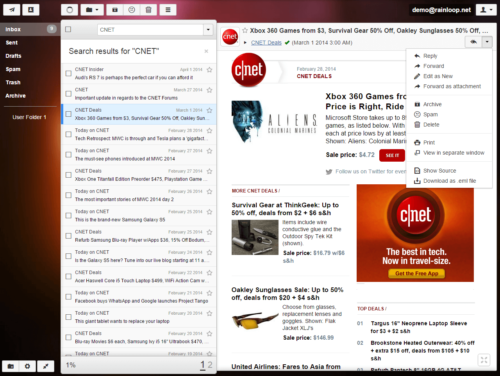For those of you who want something more than the classic-looking RoundCube, here’s the RainLoop – simple, modern, and fast web-based email client. The feature list is very comparable, yet the interface is somewhat different, looking more like Gmail, than the Outlook Express.
Tag: RoundCube
SugarCRM, RoundCube and Request Tracker integration on a single domain
In my years of working as a system administrator I’ve done some pretty complex setups and integration solutions, but I don’t think I’ve done anything as twisted as this one recently. The setup is part of the large and complex client project, built on their infrastructure, with quite a few requirements and a whole array of limitations. Several systems were integrated together, but in this particular post I’m focusing primarily on the SugarCRM, RoundCube and Request Tracker. Also, I am not going to cover the integration to full extent – just the email related parts.
Continue reading SugarCRM, RoundCube and Request Tracker integration on a single domain
Single Sign-On with SugarCRM and RoundCube Using Multiple PHP Sessions
I am currently involved in an interesting integration project at work. As part of it, we need to create a single sign-on process between SugarCRM (version 6.5.20) and RoundCube (version 1.1.4) webmail application. RoundCube webmail is being displayed within the iframe inside the SugarCRM user interface, so it would help if users didn’t have to login to RoundCube since they are already authenticated in SugarCRM.
Once the user is authenticated in the SugarCRM, a PHP session is created with, among other information, authenticated user ID. Using that ID, we can fetch the full user record and get his IMAP credentials, necessary for the RoundCube login. While this wasn’t too difficult, there were a couple of road bumps that I’d like to document here, so that next time I won’t have to work it all out from scratch again.
Continue reading Single Sign-On with SugarCRM and RoundCube Using Multiple PHP Sessions
